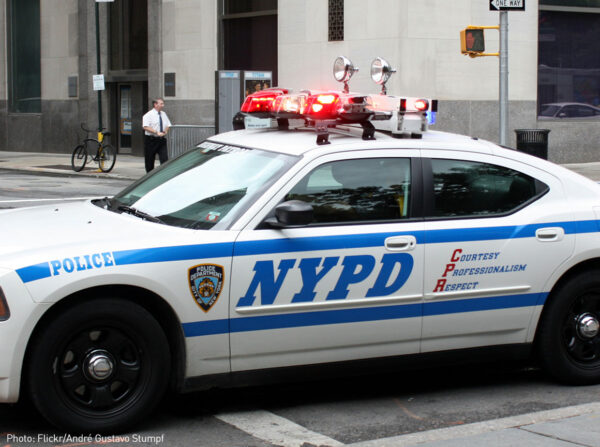Judge Calls for Additional Safeguards in NYPD Surveillance Rules
NEW YORK — In a legal challenge to the New York City Police Department’s surveillance of American Muslims, a federal judge issued a ruling calling for alterations to a landmark lawsuit settlement as a condition of approving the settlement. The alterations proposed by the judge would further strengthen the settlement’s ability to protect New York Muslims and others from discriminatory and unjustified surveillance.
The proposed settlement was announced in January in two federal lawsuits, Raza v. City of New York and Handschu v. Special Services Division after more than a year of joint negotiations. Because the Handschu case was a class action, the settlement had to be approved by the court in that case before being approved by the court in Raza. The court in Handschu held three public hearings to consider the fairness of the settlement and has now issued a decision.
The judge in the Handschu case, Charles S. Haight Jr., called for alterations that would:
- Clarify the authority of an individual outside the NYPD (a civilian representative) to ensure the NYPD’s compliance with the “Handschu Guidelines” — which govern NYPD surveillance of political and religious activity — even beyond the terms of the reforms proposed by the settlement
- Require that the civilian representative established by the settlement report periodically to the court on the NYPD’s compliance
- Require the mayor to seek court approval before abolishing the position of civilian representative.
Judge Haight found that the “other provisions in the proposed settlement are salutary” and “would strongly militate in favor of approval,” and he recommended that the parties consider agreeing to his suggested alterations so that “the Court will approve it as fair and reasonable.”
Counsel for the plaintiffs in the Raza and Handschu cases had the following reaction:
“The court’s ruling highlights safeguards we sought to secure but the NYPD refused to accept, and we hope it convinces the NYPD to establish additional protections against unwarranted surveillance. This development is an opportunity to put the strongest safeguards in place, and we are eager to discuss the court’s suggestions with the NYPD and the city. For the sake of New York Muslims and all New Yorkers, we urge that reforms are implemented as soon as possible.”
Raza was brought in June 2013 by the American Civil Liberties Union, the Creating Law Enforcement Accountability & Responsibility (CLEAR) project of Main Street Legal Services at CUNY School of Law, the New York Civil Liberties Union, and the law firm Morrison & Foerster LLP on behalf of religious and community leaders, mosques, and a charitable organization, alleging they were swept up in the NYPD’s dragnet surveillance of Muslims. The suit charged that the NYPD violated the U.S. and New York State Constitutions by singling out and stigmatizing entire communities of New Yorkers based on their religion. The case sought systemic reforms to prevent law enforcement abuses.
Separately, lawyers in Handschu argued that the NYPD’s investigations of Muslims violated a long-standing consent decree in that case, which was a class action to protect New Yorkers’ lawful political and religious activities from unwarranted NYPD surveillance.
The lawyers on the Raza case include Hina Shamsi, Patrick Toomey, and Ashley Gorski of the ACLU; Ramzi Kassem and Naz Ahmad of CLEAR; Arthur Eisenberg and Beth Haroules of the NYCLU; and Hector Gallegos, Kyle Mooney, and Adam Hunt of Morrison & Foerster LLP.
Lawyers on the Handschu case are Jethro M. Eisenstein, Arthur Eisenberg, Martin R. Stolar, Paul G. Chevigny, and Franklin Siegel.
The ruling is here:
/legal-document/raza-v-city-new-york-ruling-proposed-settlement-agreement
More information on the case is here:
/cases/raza-v-city-new-york-legal-challenge-nypd-muslim-surveillance-program


